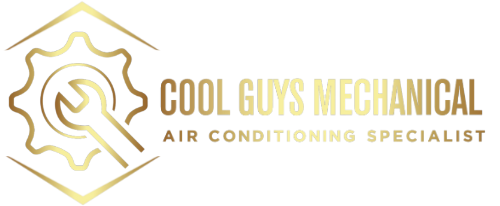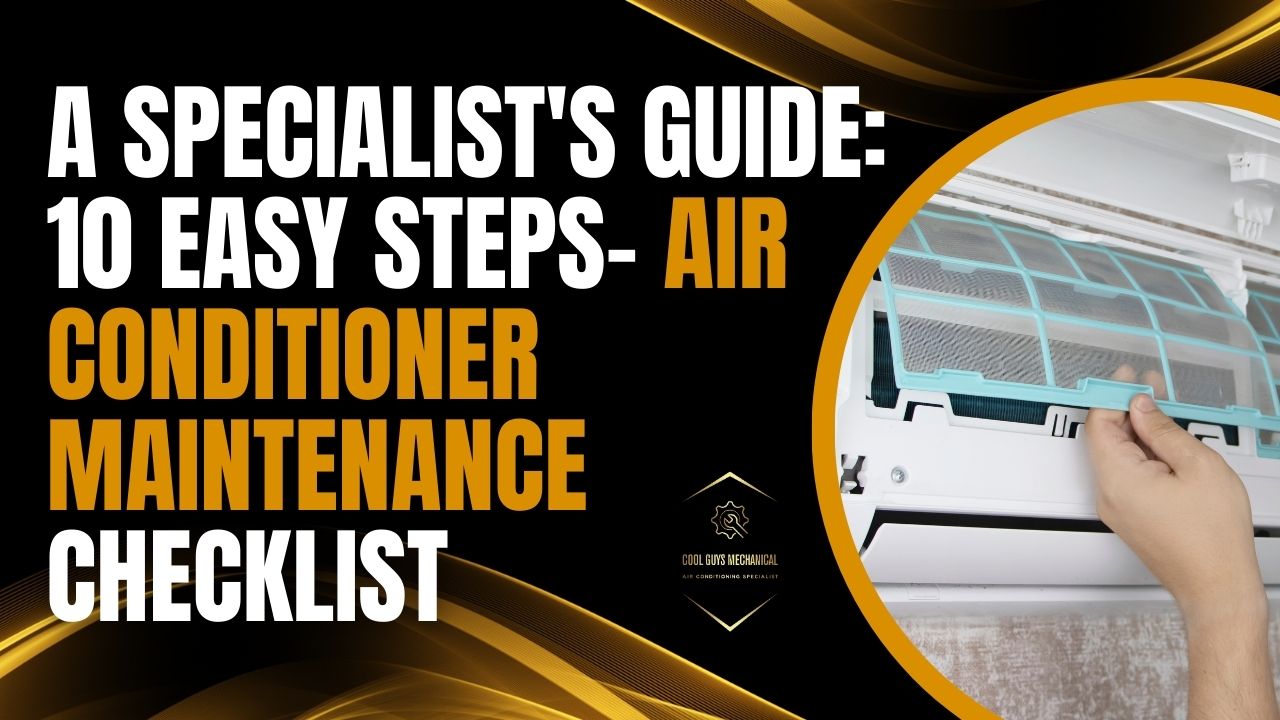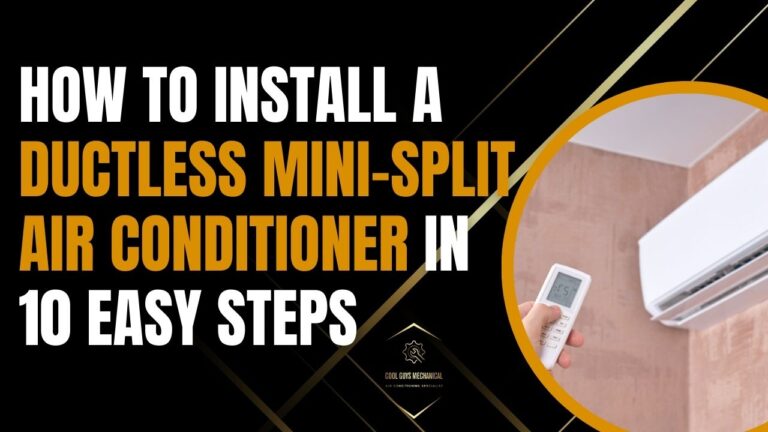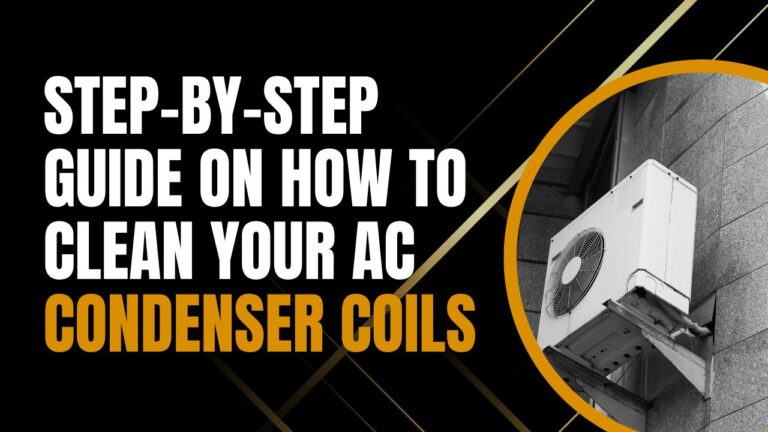A well-maintained air conditioning system can help eliminate unfavorable situations wherever you are, at home, or in the office. It gives you, your family, employees, and clients quality air and comfortable space.
An air conditioning system is a complex system with interconnected parts that must be maintained regularly to avoid problems. Worse, if you don’t immediately take action, the issue can become severe and cost you more.
This article aims to provide you with the top 7 benefits of regular air conditioning service, a comprehensive air conditioner maintenance checklist you can do yourself, and what can be delegated to your AC specialist.
How to Prepare An AC Maintenance Plan
There are several things you need to consider when preparing an AC maintenance plan:1. Optimum maintenance period of the various components of your AC system
The optimum maintenance period should be your basis for developing the best preventive maintenance plan for your AC system. Hence, using your user’s manual is vital as it will serve as a reference in framing maintenance plans and determining maintenance intervals. This is because this information is already established following extensive testing and analysis. Check the user’s manual and note when each component needs to be serviced. Next is to review the instructions for your motors, chillers, boilers, air handlers, and other components of your AC system. If you don’t have the manual, your best action step is to contact the local manufacturer’s office for more details.2. AC complexity level
An AC specialist can provide you with a precise assessment of the level of complexity of your air conditioning system as they have the skills to service a wide variety of brands and models.3. The average run time/day of the air conditioning unit
Lastly, you must also consider how long your air conditioner usually operates daily. However, this may vary depending on where it is being used.
In comparison to residential air conditioning units, commercial ones may have a substantially longer running time. Use the runtime to estimate how your maintenance cycle will change.
Why is Annual AC Maintenance Essential?
You should not put off routine air conditioner maintenance service because, despite its robust structure, some of its internal calibrations are vulnerable to environmental factors. Routine AC maintenance can give you numerous advantages; one of which is that periodic maintenance can prevent considerably more expensive repairs down the road. Below are some of the advantages that routine maintenance of your air conditioning system can provide:Save more money
You can reduce your utility bills by adhering to scheduled maintenance. A well-maintained air conditioning system keeps your home or workspace cool and comfortable and effectively maintains a specified temperature. Hence, energy expenses are reduced since the system requires less energy to operate.
Increase equipment longevity
A properly maintained air conditioning system at timely intervals lasts longer. When one system collapses, it creates a cascading effect on the other system because of their dependency on each other. Thus, it is crucial to maintain all the systems regularly.Lowers repair costs
If you continuously put off maintenance, the greater the possibility of your commercial AC repair service bills skyrocketing. When you strictly follow scheduled maintenance cycles, you can detect the early onset of problems in your air conditioning system and prevent them from escalating.Prevents total damage
Sometimes people tend to disregard air conditioning maintenance, which can leave your unit inoperational in the long run. With routine maintenance, you can avoid malfunction and always keep your unit up and running when needed, especially in the summer.Promotes safety and efficiency
The most crucial reason for routine AC maintenance is the safety and peace of mind it can give you. Electrical problems can undoubtedly result in fire dangers or electrocution because of an air conditioner’s demand for a considerable amount of electricity. Routine maintenance must be performed to ensure that there are no problems that might adversely affect the air quality.PHASE 1: AC Maintenance: Do-It-Yourself Tasks
A. Outdoor Unit (Compressor and Condenser)
Checklist Item #1: Clean dirt and debris around the external unit
Most dirt and debris get caught in the condenser fins, so they should be carefully removed. You can use a rough paintbrush to remove any residue. Thereafter, you can start removing the finer dirt with a vacuum cleaner with a brush attachment. Also, remove any plants growing or other objects around the condenser within a two feet radius.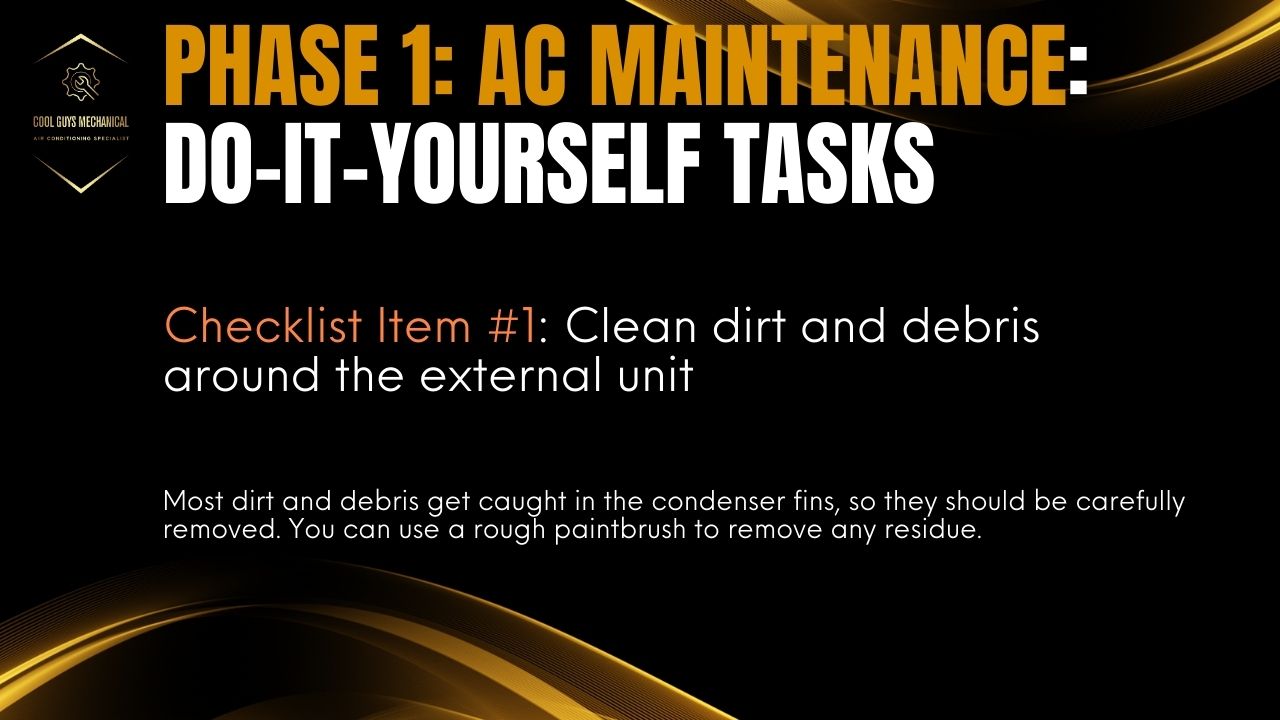
Checklist Item #2: Clean and straighten AC Fins
There are times when gunk and dirt accumulate on the fins and can be difficult to remove with just a brush. Try using an old dinner knife to effectively scrape the dirt stuck in between fins, and at the same time, reshape the bent ones.

Checklist Item #3: Clean the condenser fan
The condenser fan is where dirt and dust commonly accumulate over time. Hence, it requires regular cleaning. Sometimes, leaves can also get stuck in them. The most practical way to clean the condenser fan is to wipe it with a damp cloth and let it air dry.
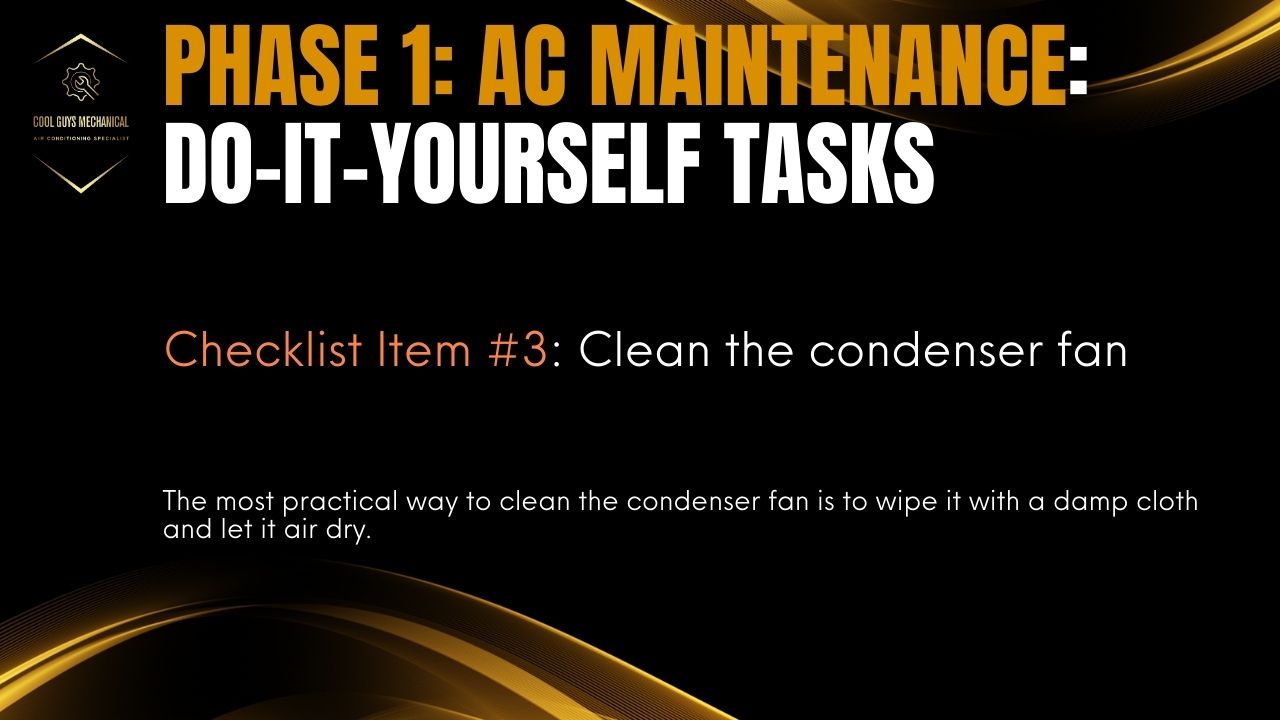
Checklist Item #4: Thoroughly clean the fins inside out
To clean the fins inside out, you only have to use a garden hose with a nozzle and run them through. This thoroughly removes stubborn dirt. However, be careful not to get the water in the fan motor.
You can also check fan lubrication, especially if your fan motor does come with sealed bearings. Only use an electric motor oil to lubricate it.
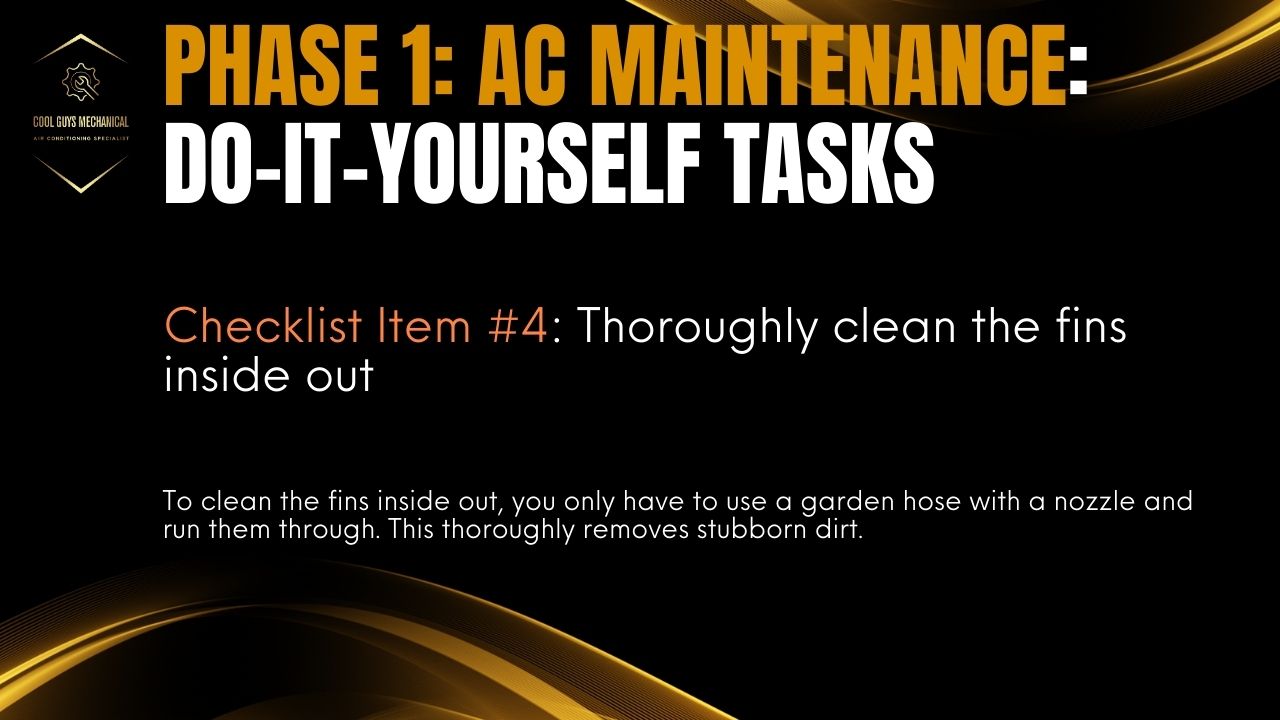
B. Indoor Unit (Evaporator and Blower)
Checklist Item #5: Clean the evaporator coil
Usually located inside the blower or furnace unit, the evaporator coil door collects dirt and debris over time.
To start off, use a soft-bristled brush to remove any dust before applying a no-rinse coil cleaner to help effectively remove dirt deposits and other gunk from the coil and increase its efficiency. You can also use water and mild detergents to eliminate the dirt in between coils.
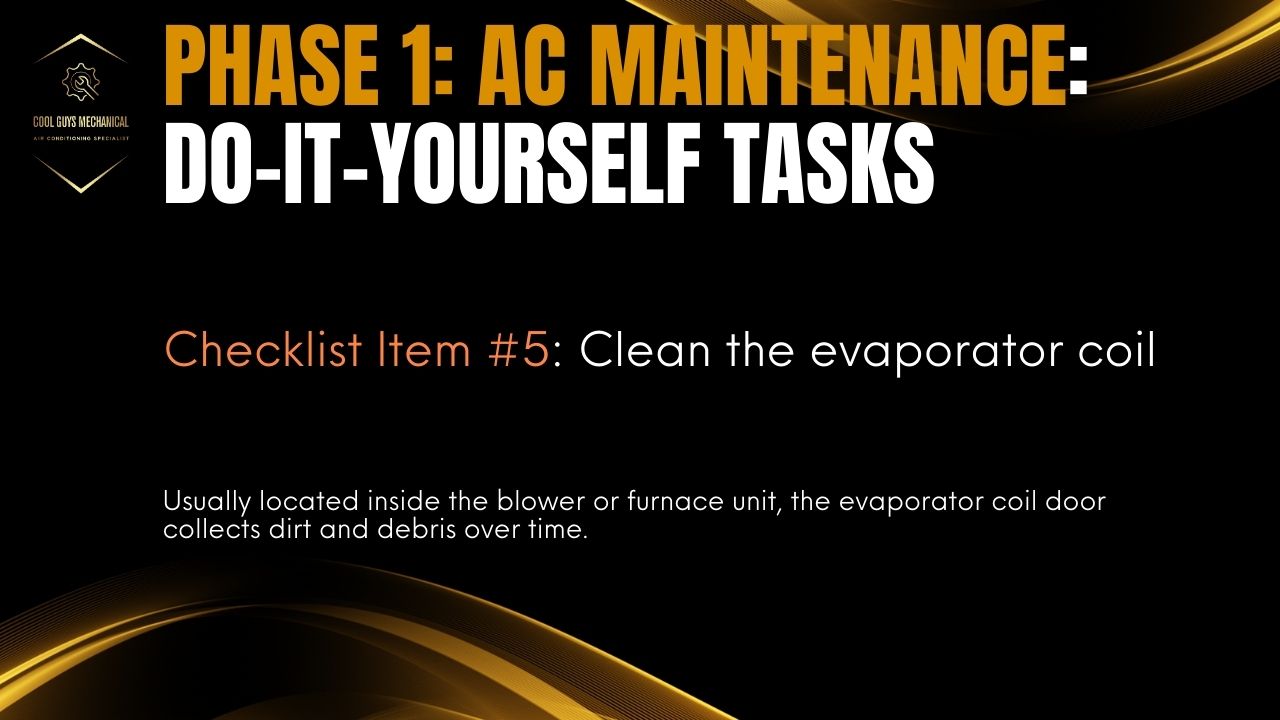
Checklist Item #6: Clean the evaporator drain
The evaporator drain must occasionally be disconnected because it tends to accumulate algae and mildew.
A clogged drain might result in flooding that causes damage to the floor. Moreover, if your air conditioning unit has a drain float, it is inoperable until the water is emptied out. Clogging may also cause a foul odor coming from the unit.
An inch-wide PVC pipe serves as the drain, and it can either drain internally through the sink or utility drain or externally near the condenser unit.
Use a wet or dry vacuum cleaner to clear out the evaporator drain of dirt and debris.
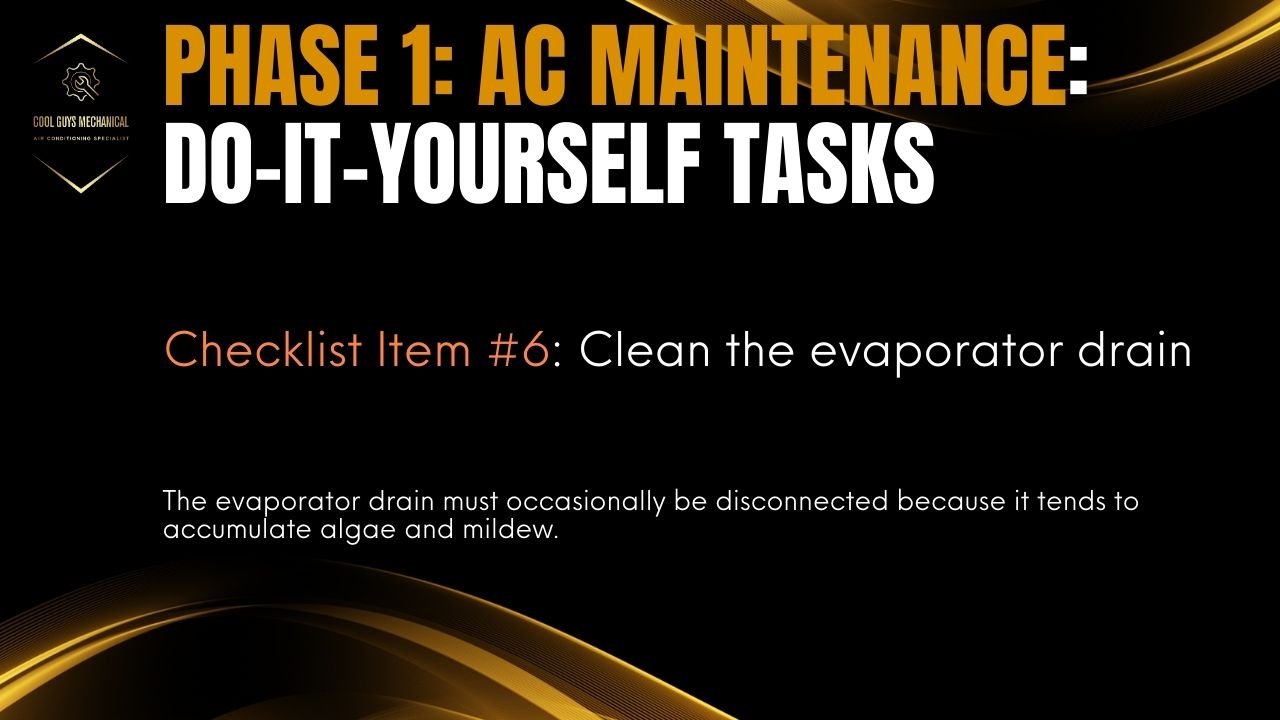
Checklist Item #7: Change the blower filter
The frequency of changing your blower filters is dependent upon the area where you are currently residing.
Ideally, your blower filter should be replaced at least twice a year. This should be done before the start of the summer season and before the winter.
Before changing your filter, ensure that the old filter’s airflow rating and the new one for replacement are compatible.
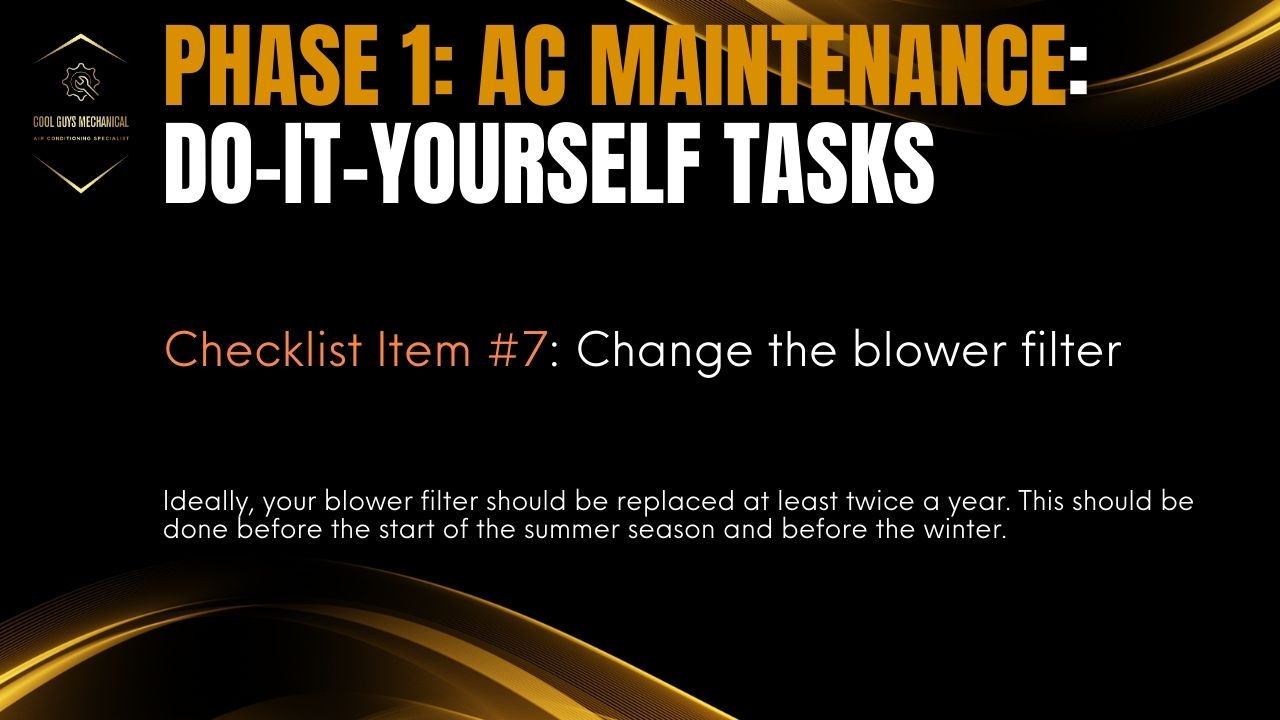
Once you are done with the above-mentioned steps, your air conditioning unit should be cleaner and more efficient at regulating temperature. Turn on the AC power switch and then check if its functioning properly.
PHASE 2: AC Maintenance: AC Specialists Tasks
Checklist #8: Professional regular inspection and maintenance
For in-depth inspection, it is best to leave it to the experts. An air conditioner’s check-up and maintenance calls for skilled hands, not to be handled lightly, as numerous items must be carefully calibrated and checked. In addition, only those with the necessary tools, training, and level of expertise can carry out such intricate tasks.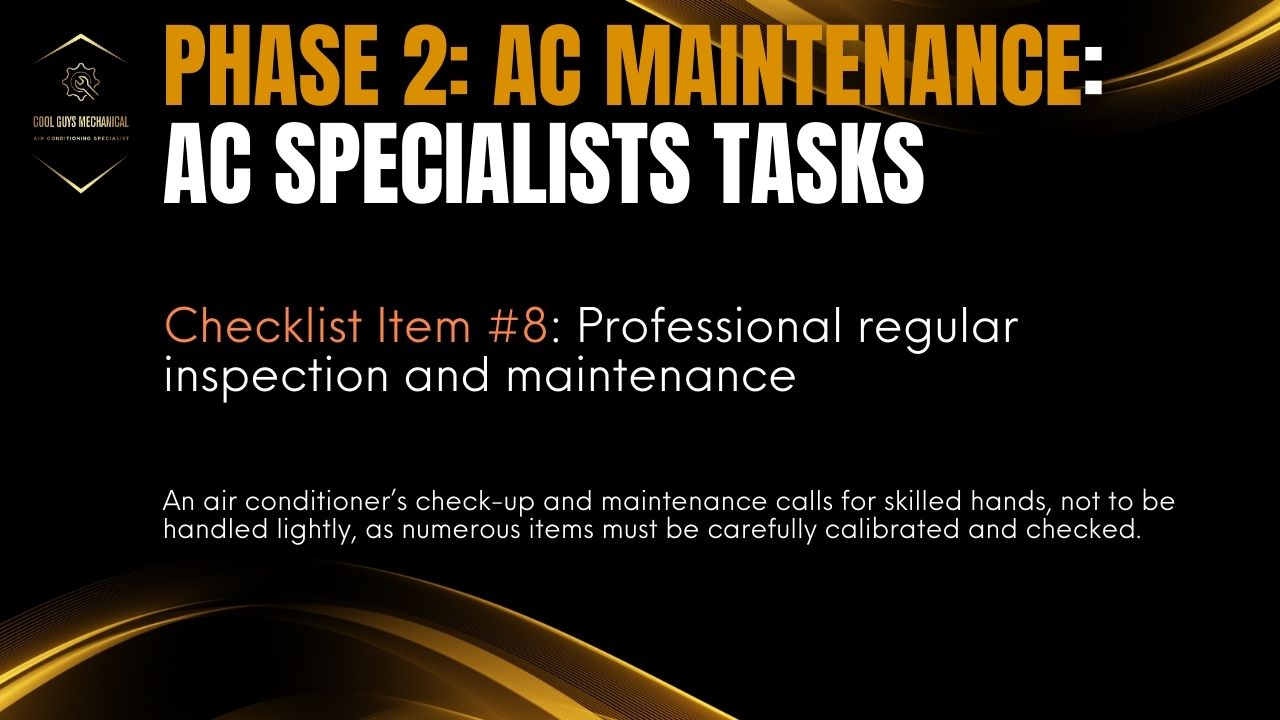
Checklist #9: Electrical Issues
Because of the sophisticated ecology of electrical wires, tubes, and motors of air conditioners, it is inaccessible to those unfamiliar with it. It is never a good idea for many individuals to tinker and check defects independently. The complexity of its circuits may lead to shorts due to improper wiring.
Checklist #10: Compressor Short-Cycling
It may be particularly taxing on the system when the compressor in a central air conditioning system starts to cycle on and off more often than usual (every 15 minutes). Several reasons can cause compressor short-cycling and must be immediately fixed. It strains your air conditioning unit and may cause your components to malfunction or prematurely wear out. The fact that numerous systems are involved and potentially problematic makes this problem challenging to diagnose; hence, this is a classic example of why you will need an air conditioning expert to do this task.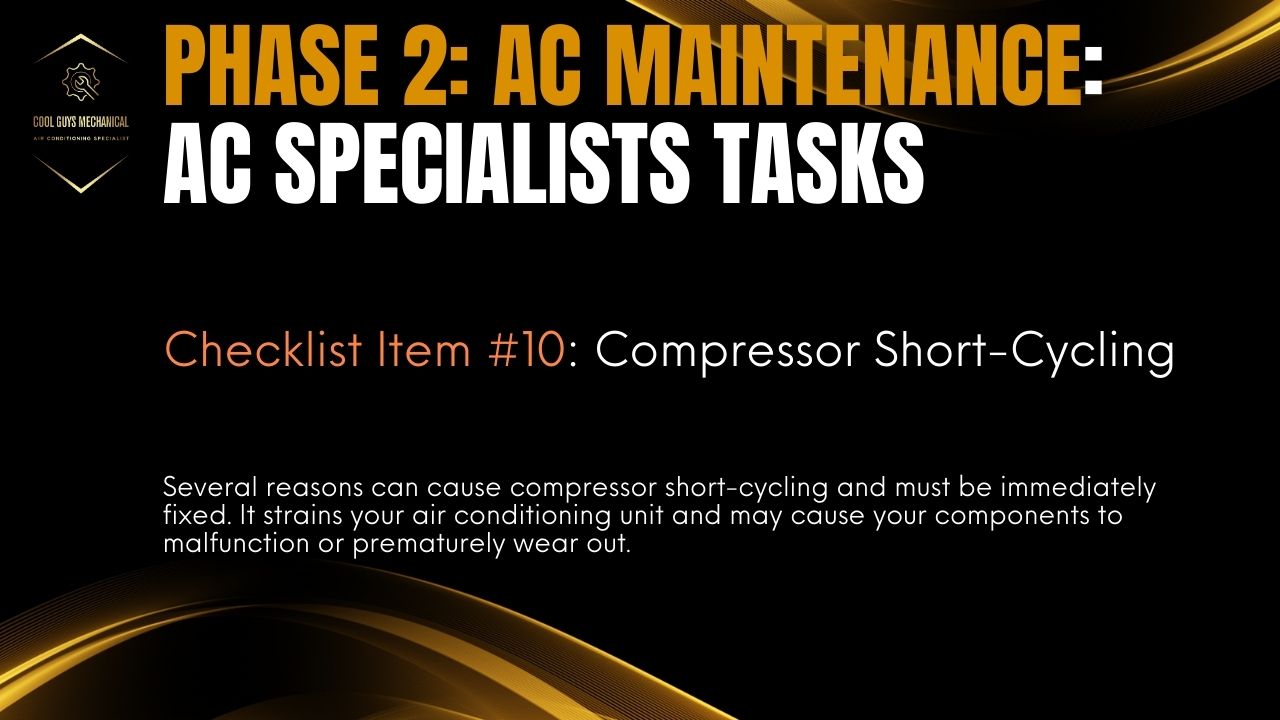
Conclusion
To keep your air conditioning system efficient, below are the list of items you must regularly check:
Outdoor Unit Checklist
- Check and clean condenser unit of dirt and debris
- Check refrigerant levels
- Check the coils
- Check the cabinet for dusts and debris
- Check the drain pan for any obstructions
- Check the motor and fan for wear and tear
- Check for possible damages in the compressor tubings and wire
Indoor Unit Checklist
- Check the blower housing for debris and clean it if necessary
- Check and clean as required the evaporator coil
- Check the fan motor and belt
- Lubricate motor for older models
- Replace the belt if necessary
- Check the safety controls and ignition system; clean if necessary
- Check ductworks; ensure there are no leaks
- Check air filters; clean and replace as necessary
- Check wiring and connections in the control box
To keep your air conditioning unit functioning efficiently, you must not put off routine maintenance. Even though you might not always find it necessary, preventive maintenance is highly advantageous and can reduce repair costs and your utility bills.
If you are looking for a reliable and trusted air conditioning repair company to help keep your air conditioning unit at its peak performance, whether at home or at your business, Cool Guys Mechanical is your go-to team.
Call us today for a FREE estimate or schedule an appointment.
